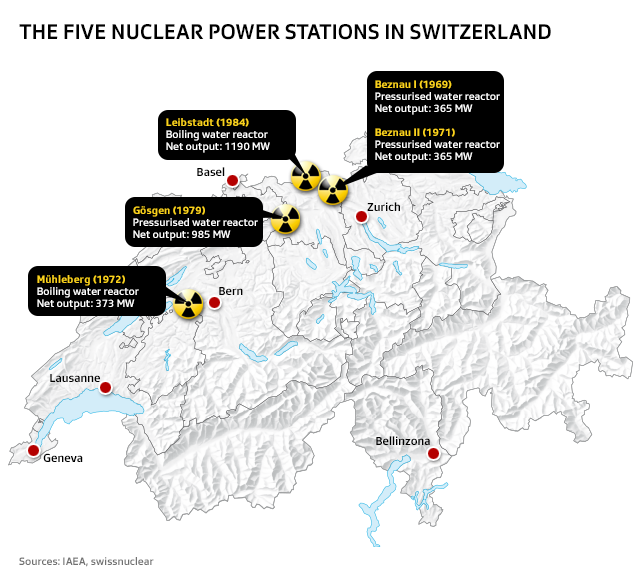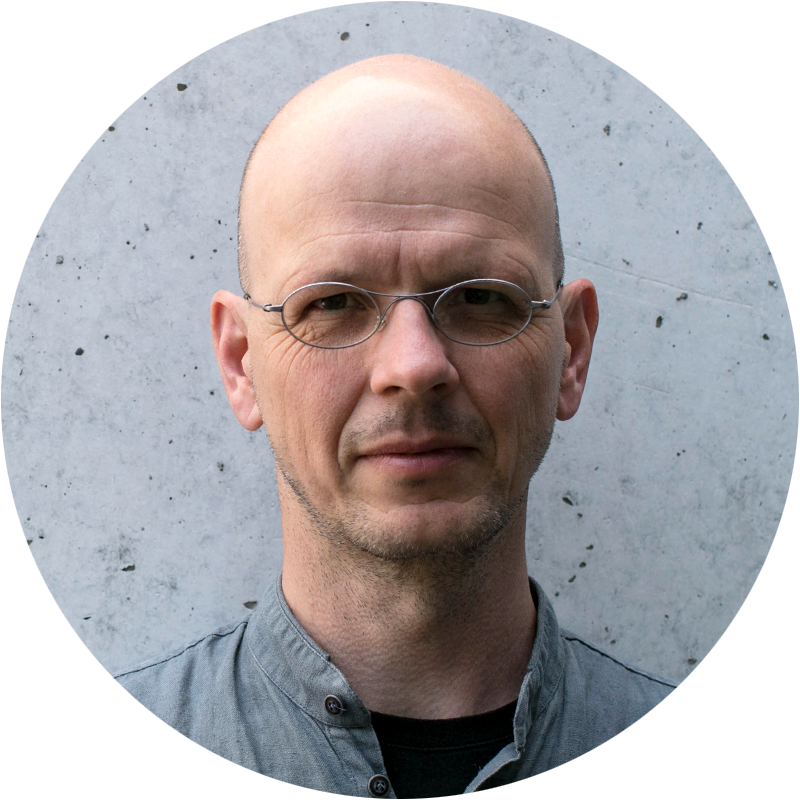Beznau – a symbol of progress turned object of discord

The commercial use of nuclear energy in Switzerland began 50 years ago when the first power plant became operational. Today, the Beznau I power plant is one of the oldest thermonuclear power plants in the world still in operation.
Only a few power plants in India and the United States are older than the Swiss Beznau I reactor, which is located on a small island in the river Aare in northern Switzerland, together with its sister plant Beznau II. Beznau I officially went online on December 9, 1969.
It nearly never happened. Switzerland had virtually given up its attempts to build its own reactor after a serious incident at the Lucens experimental reactor in western Switzerland in January of the same year. This knocked Switzerland’s dreams of self-sufficiency in the nuclear sector.

More
The nuclear power plant on an island
The commissioning of the Beznau reactor using US technology turned a new page in the history of Swiss energy policy. It was joined by the Beznau II (1972), Mühleberg (1972), Gösgen (1979) and Leibstadt (1984) plants, covering 40% of Switzerland’s energy requirements.
Growing opposition
The Beznau power plant was built at a time when nuclear energy enjoyed broad public support. Throughout the world, the prospect of a peaceful use of this new source of energy had triggered euphoric visions for a future without fear of energy shortages.
At the start of the 1970s, however, the winds of sentiment turned. Organized opposition against the construction of nuclear power plants took root. The risks of nuclear energy and concerns about the unresolved problem of radioactive waste disposal were increasingly the focus of attention.
In 1975, thousands of people occupied the construction site of the planned Kaiseraugst power plant in canton Aargau. From this point on, nuclear energy became a hotly contested issue in Swiss society.
In the following decades, Swiss voters were called to the polls several times. The last time was in 2017, when the voters approved a new energy law that calls for the gradual phasing out of nuclear energy.

A decade to come
At the time of its construction there were no protests against Beznau. In recent years, however, the power plant has increasingly made the headlines. In March 2014, a group of Greenpeace activists temporarily occupied the site and demanded its closure. Already in 1993 activists had gained entry to the power plant site.
In March 2015, Beznau I was shut down after irregularities were discovered in the structure of its reactor pressure vessel. Inspections by the power plant operator, Axpo, ruled out the chance that it could lead to safety problems.
The Swiss Federal Nuclear Safety Inspectorate (ENSI) accepted these conclusions and approved the re-commissioning of the reactor in March 2018. However, the decision is contested with nuclear opponents claiming that safety at such an old nuclear power plant can no longer be guaranteed.
Axpo, on the other hand, points to millions invested in safety and expects the plant to stay in operation for a few more years. In June, the NZZ am Sonntag newspaper reported that Swiss Federal Office of Energy (SFOE) experts believed it possible that nuclear power plants could remain in operation for the next 60 years.

In compliance with the JTI standards
More: SWI swissinfo.ch certified by the Journalism Trust Initiative









You can find an overview of ongoing debates with our journalists here . Please join us!
If you want to start a conversation about a topic raised in this article or want to report factual errors, email us at english@swissinfo.ch.